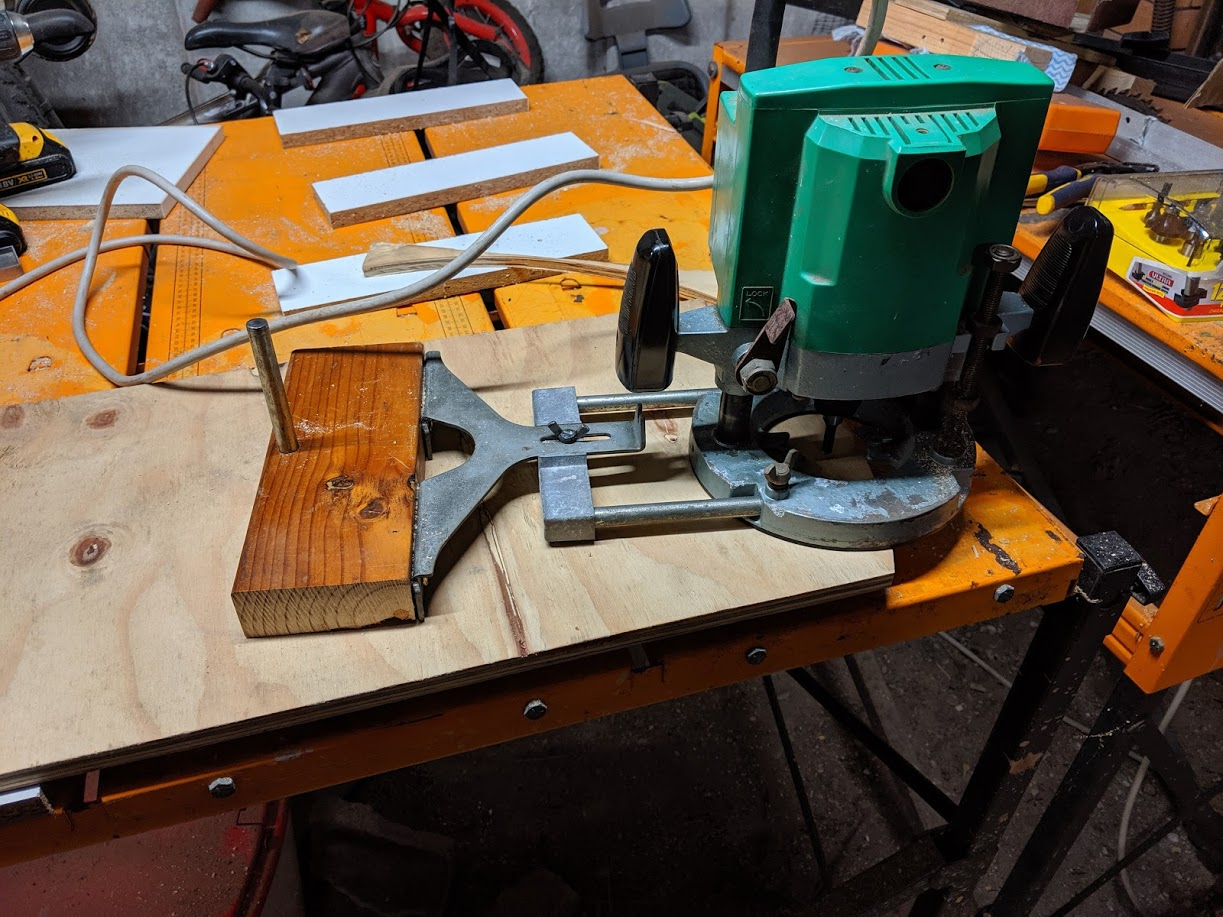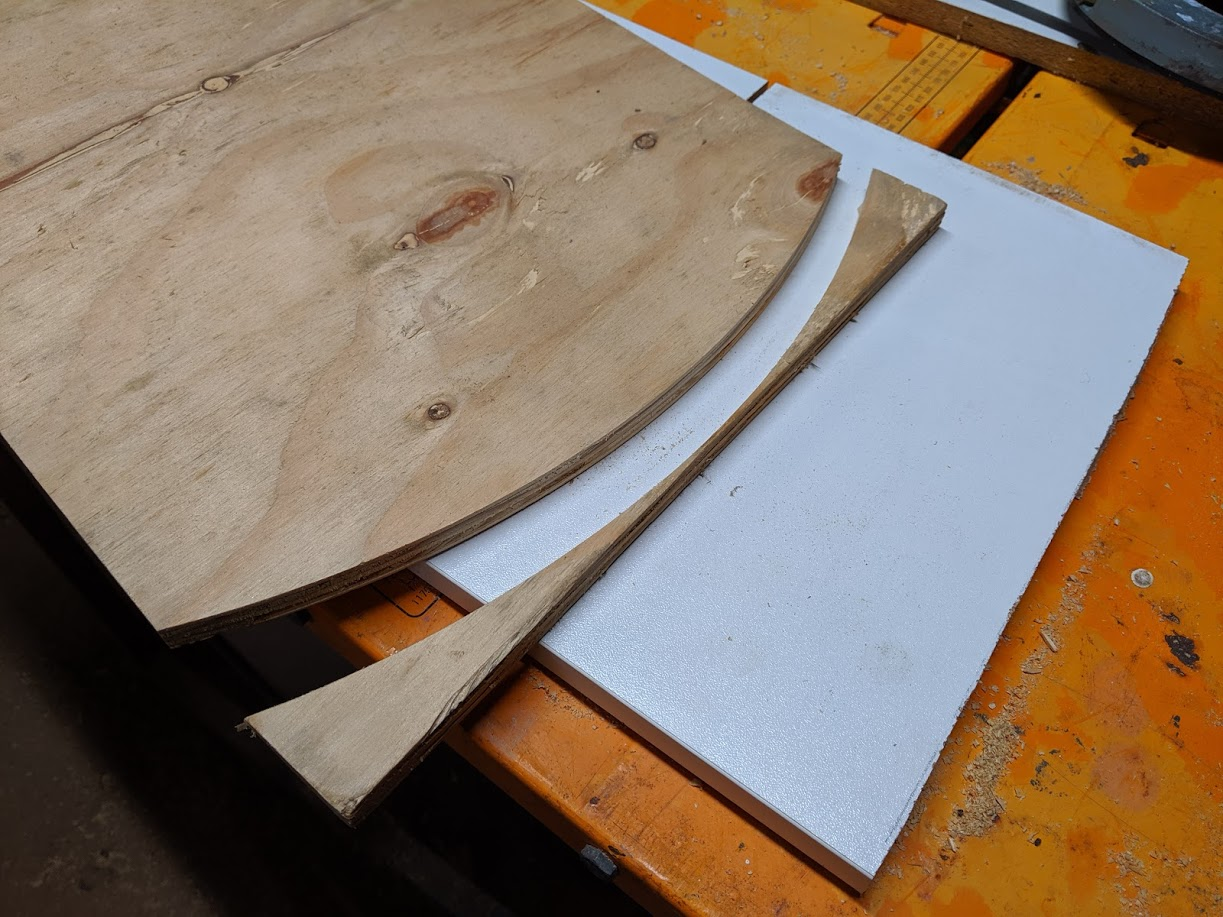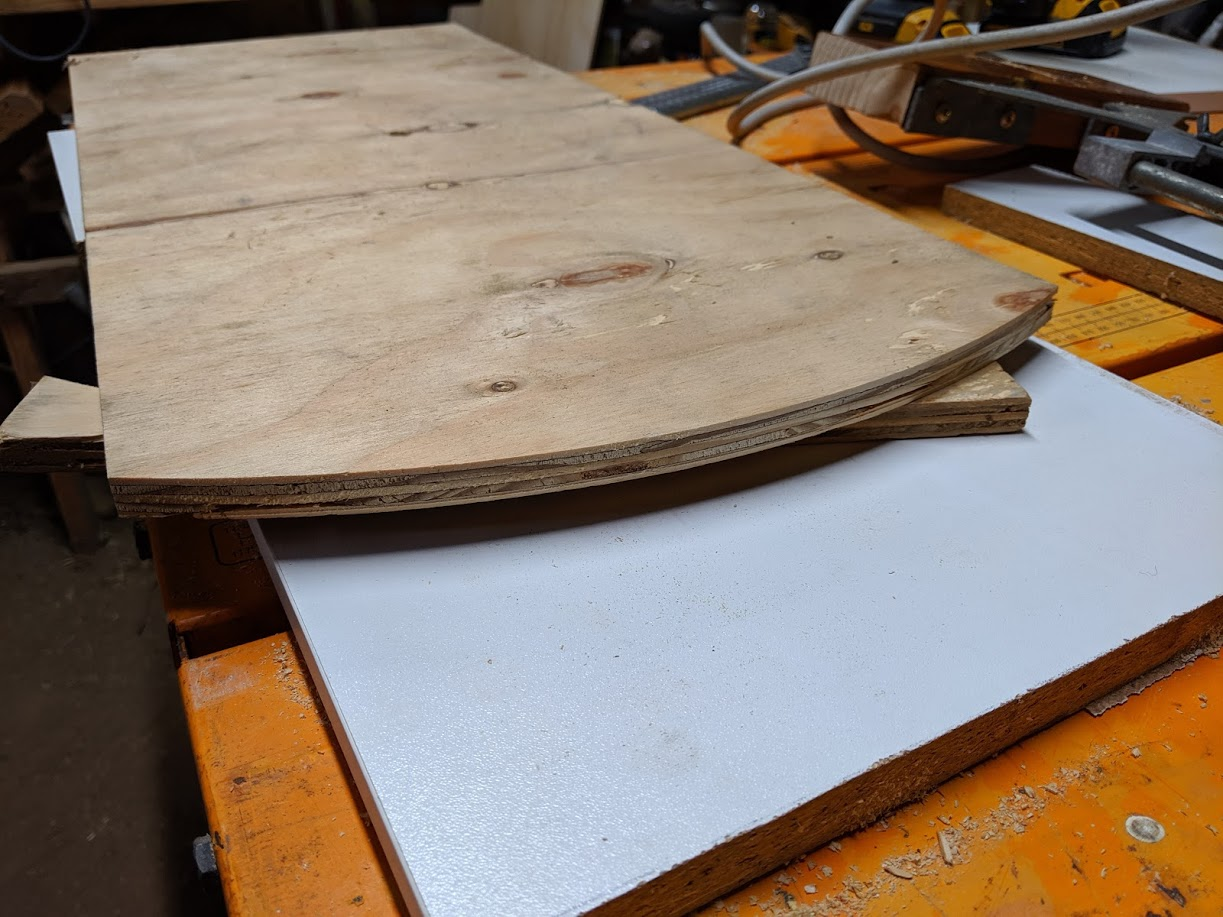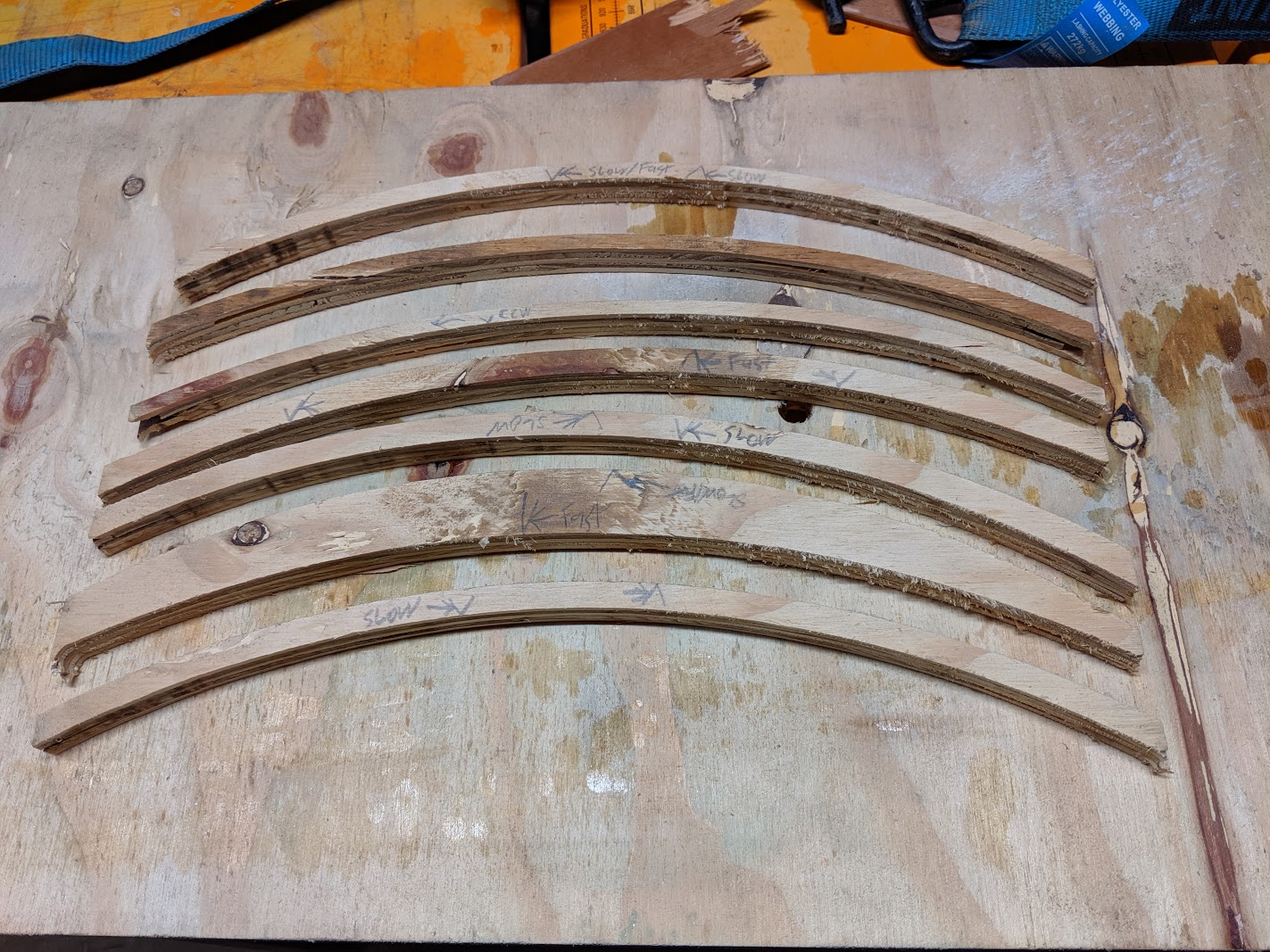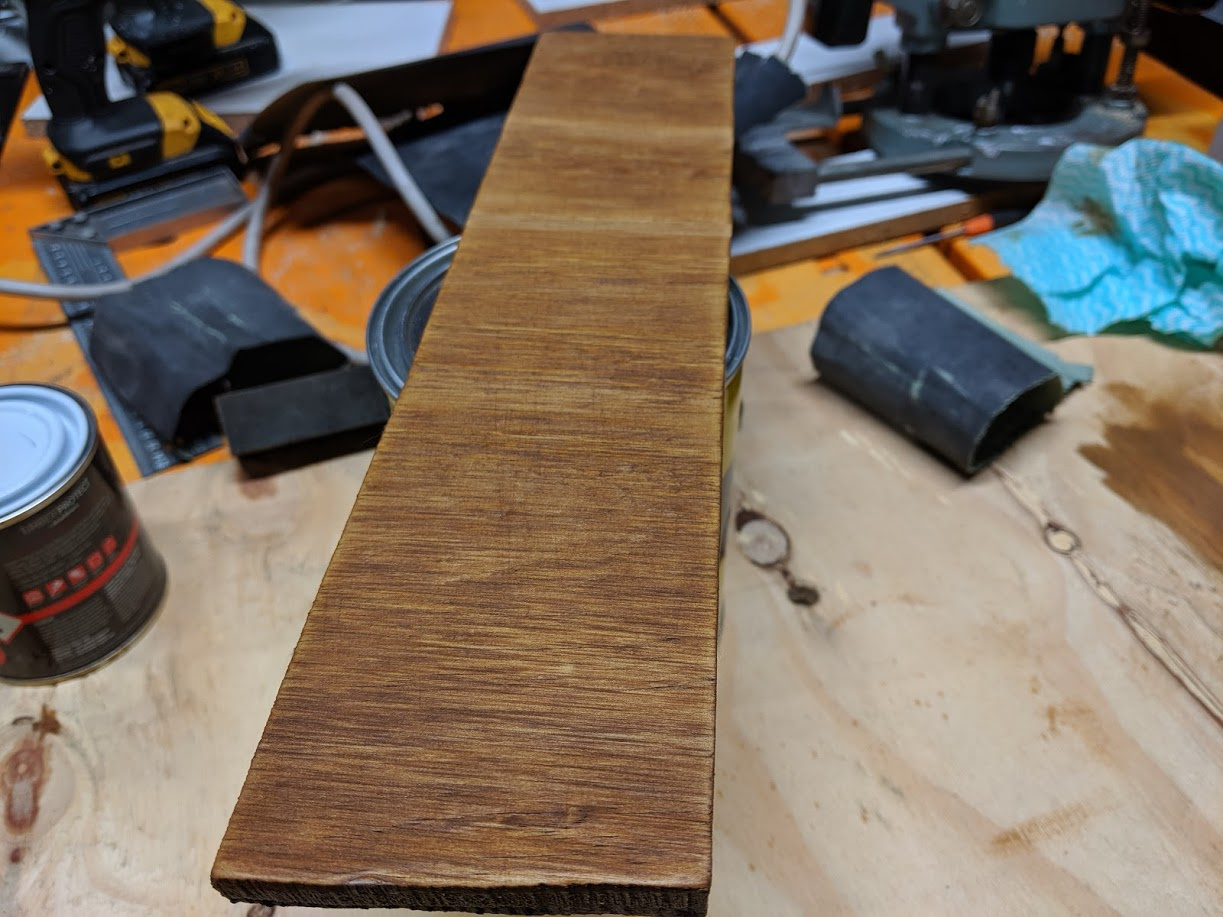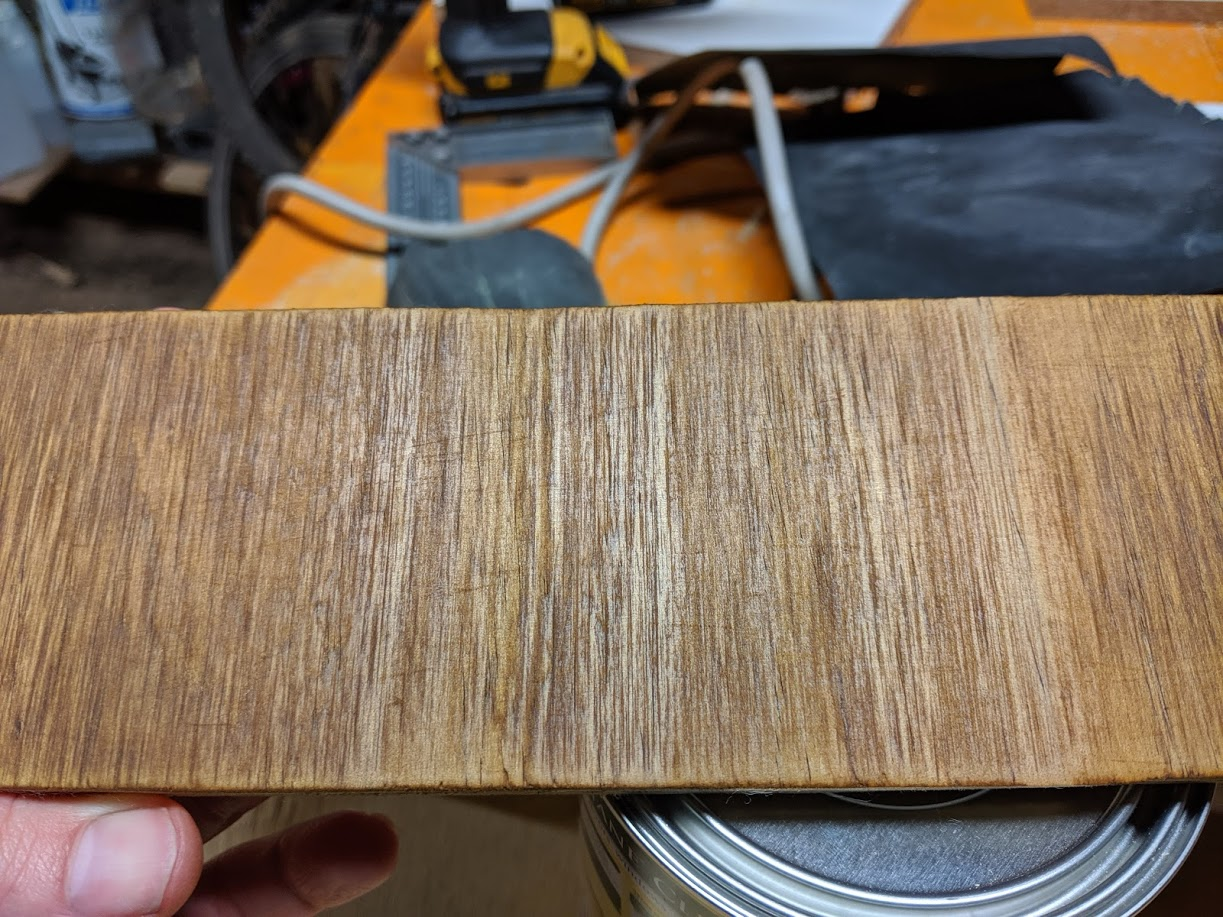Table of Contents
What I want to accomplish
- Do some test cuts of some scrap plywood with the router,
- Build a circle-cutting jig,
- See how plywood sands,
- Test out the stain,
- Test out the varnish.
What I've done
Circle-cutting jig
I inherited this router from my father in law. It took a moderate amount of WD40 and violence but I got all the moving parts moving. It's quite powerful, and takes 1/2“ bits. Some of the attachments are missing but I bodged together the above quickly. There is very little flex or wobble in this system, so it should cut good circles.
Test cuts
I got some old scrap bits of plywood and rounded off one of the ends. I tried a few shallow cuts with a 8mm straight router bit and it was effortlessly cutting through without slowing down or leaving much of a burr. I haven't concluded whether it's better to move in one direction or the other. I imagine as long as the RPM remains high there isn't much of a difference.
I did have some blow-out at the start and ends of the cut where one of the internal layers was spat out the side. I won't have this when cutting a circle, because there are no ends. The cut also exposed some internal voids in the ply: knots laminated on both sides. I'm not sure what I'll do if I encounter those when cutting the proper board. If there's only a few I can fill them with sawdust and PVA. If there's lots I might have to go up to marine grade ply to get the finish I want.
I ran a great many cuts in different directions with different feedrates.
My conclusion is that the direction doesn't matter all that much. Variability in the texture of the ply makes a bigger difference. This said, I generally got the best results moving at about 10-20mm/sec with a 6mm straight bit cutting all the way through 12mm ply, turning counter-clockwise with a clockwise-spinning bit.
Stain test
I also sanded and stained a scrap piece of ply. I started with 80-grit and ended up with 320 grit, sanding by hand with a sanding block. The surface was smooth but lumpy on a larger scale. I think I need to spend longer with the coarser sandpaper to even out the bumps. I'll be sanding the actual board with an orbital sander, so it won't be so tiring.
I dusted the wood off and put a moderately thick coat of stain on and wiped most of it off with a chux after a minute or two. There are some deep scratches from the coarser grades of sandpaper. I think I just need to spend longer sanding with the finer grades to remove these.

